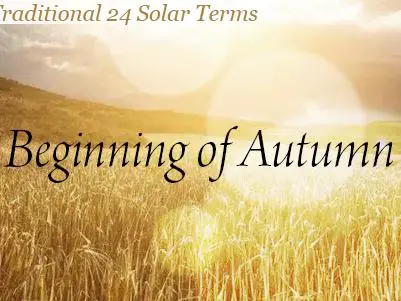Beginning of Autumn: 13th Chinese solar term
04:49
Heatwaves still rage on during the day, yet sporadic rains and winds after dusk bring a breath of autumn.
The 13th Chinese solar term "Liqiu", also known as "beginning of autumn", falls on Aug.7 this year. Liqiu, which is the first solar term in autumn, reflects the withdrawal of summer and the beginning of autumn.

Three phases of "Liqiu"
In ancient times, "Liqiu" was divided into three phases, each phase containing 5 days.

In the first phase comes the cool wind. The autumn breeze is soft, calming and peaceful, the season of which your mind is clear.
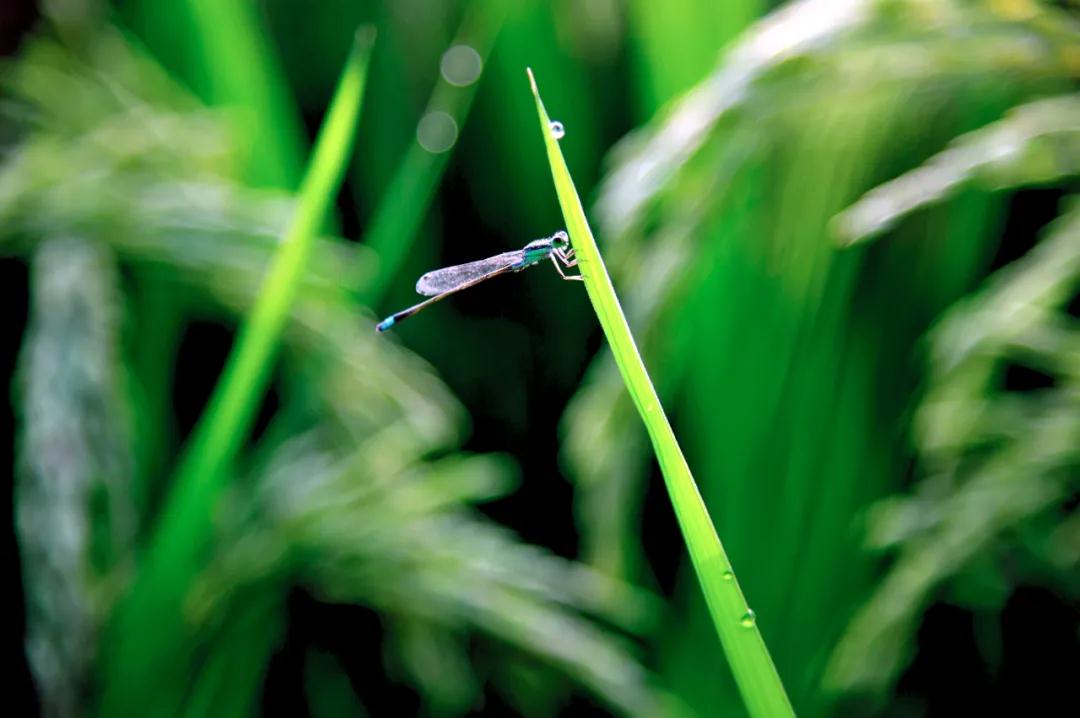
In the second phase falls the white dew. Weather is still hot in daytime, but turns pretty cool in the evening. Owing to the temperature difference between day and night, dew makes its debut on the surface of plants with the light of autumn morning.
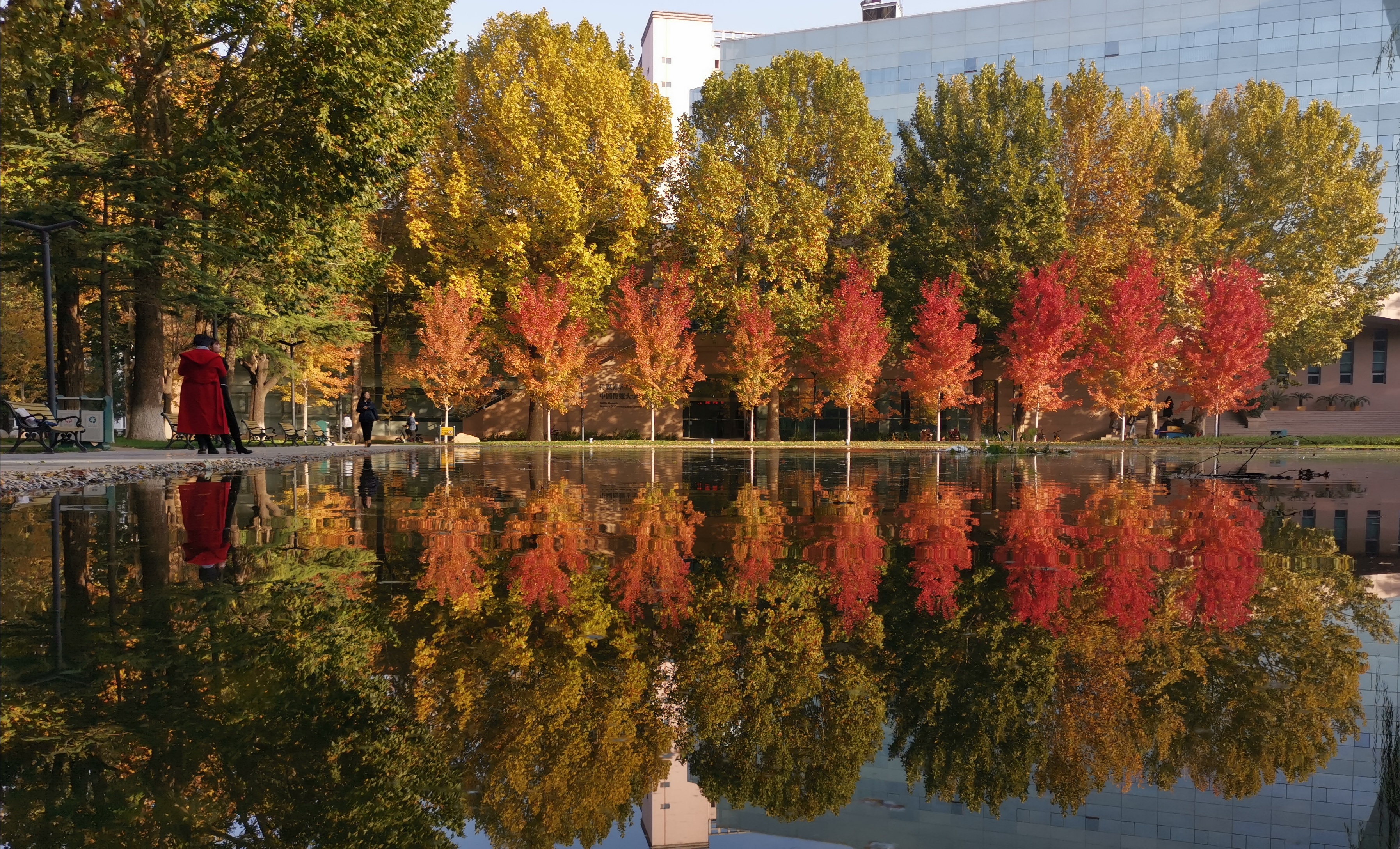
The third phase is dubbed "the lament of cicadas". After chirping for a whole summer, the cicadas could not suffer coldness of the upcoming autumn. As autumn deepens some cicadas let out their last cry, informing us the departure of summer.
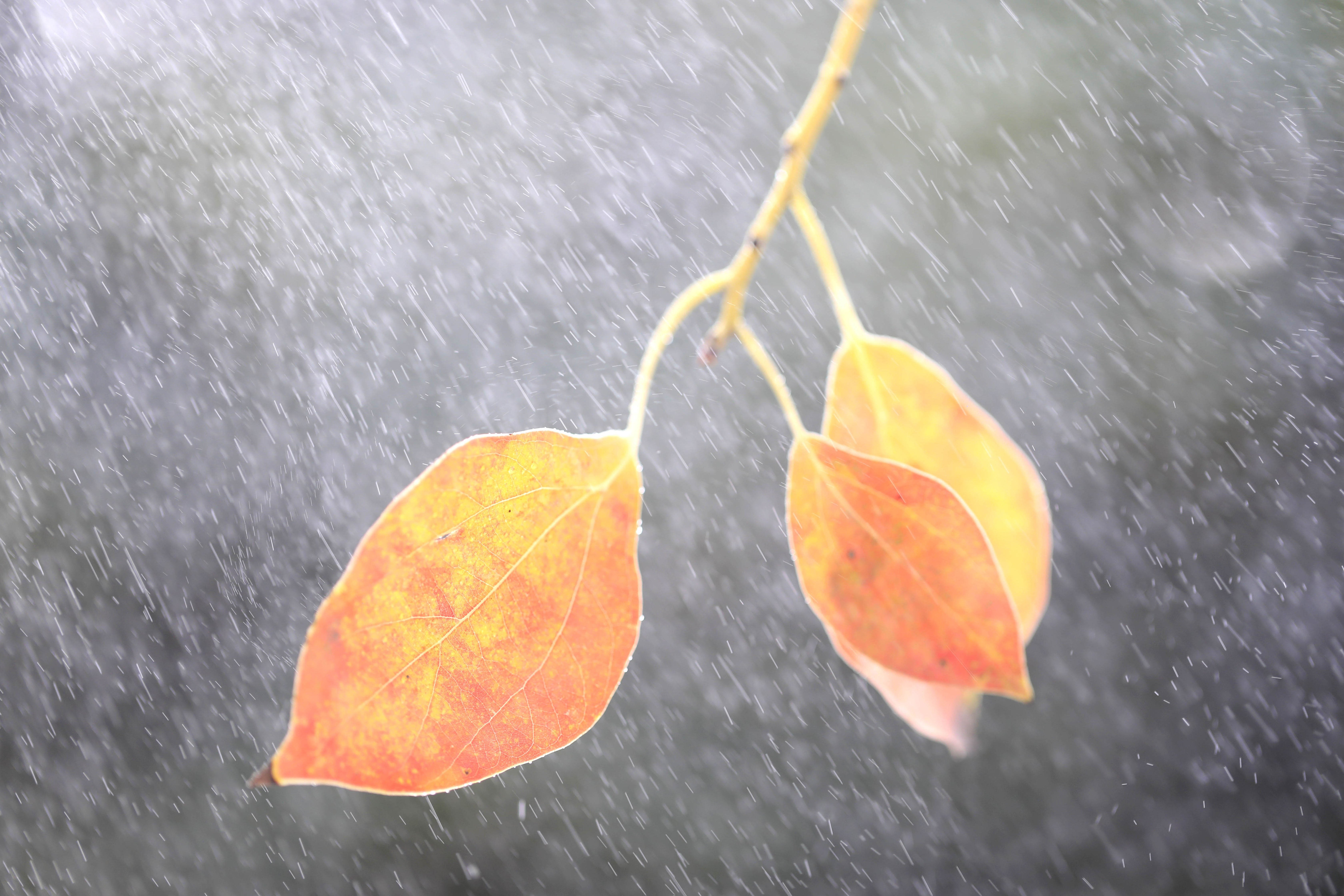
"One falling leaf is indicative of the coming of autumn."
(一叶知秋)
The old Chinese saying implies that a small sign could indicate a great change. People should keep an eye out for changes and act early.
Golden chance for harvest
Autumn is a season of harvest. It is the time that autumn crops come into their crucial growing stage.
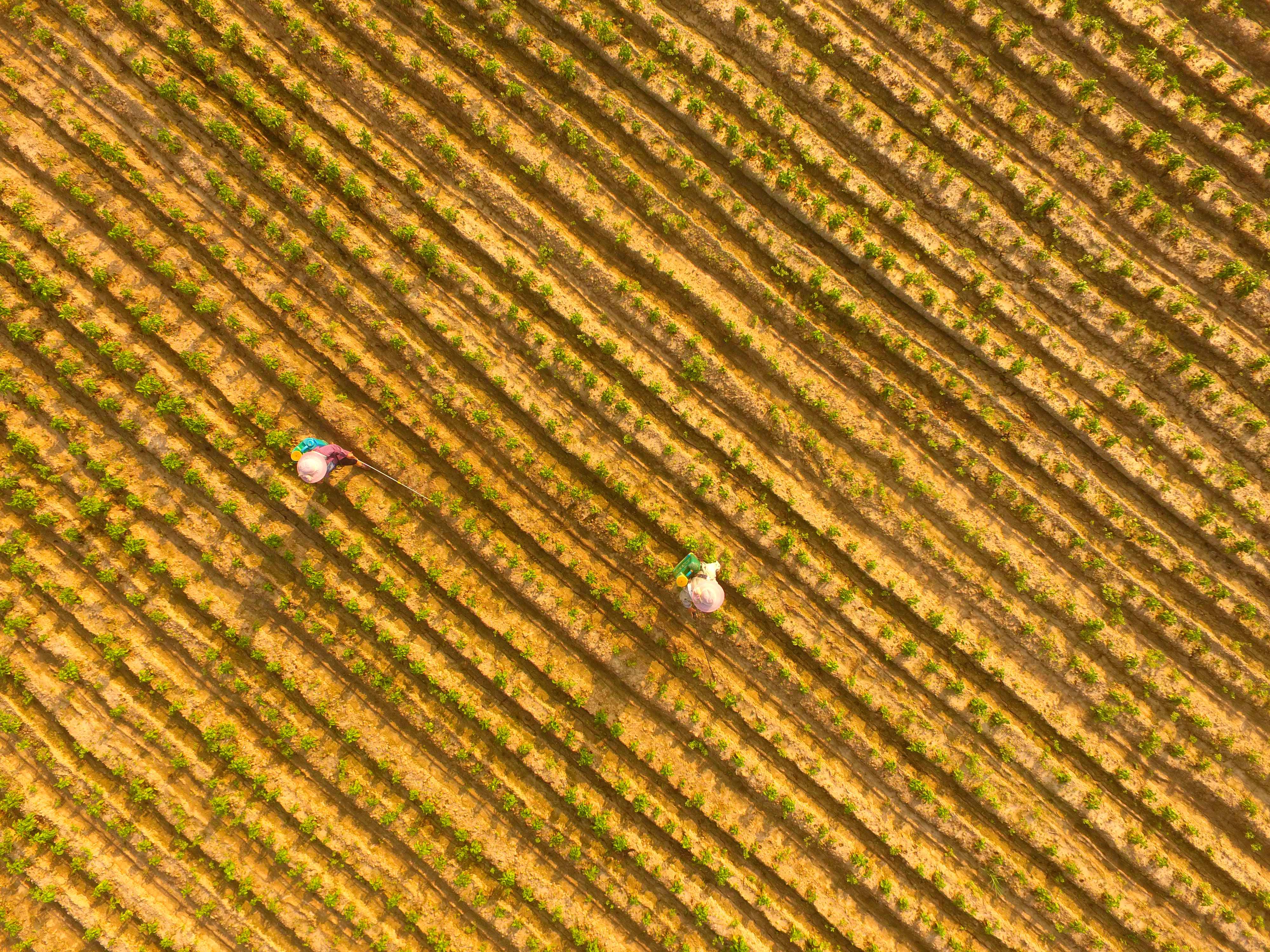
As an old Chinese saying goes: "If there are sunny days in the Beginning of Autumn, farmers will save much of their efforts."
(立秋晴一日,农夫不用力)
These days are of great importance for the Chinese farmers who have relied on the 24 solar terms to arrange their farm work since the ancient time. By observing the weather, farmers are capable of judging when to plant the Chinese cabbage and winter wheat, and how to take care of crops to secure a harvest.
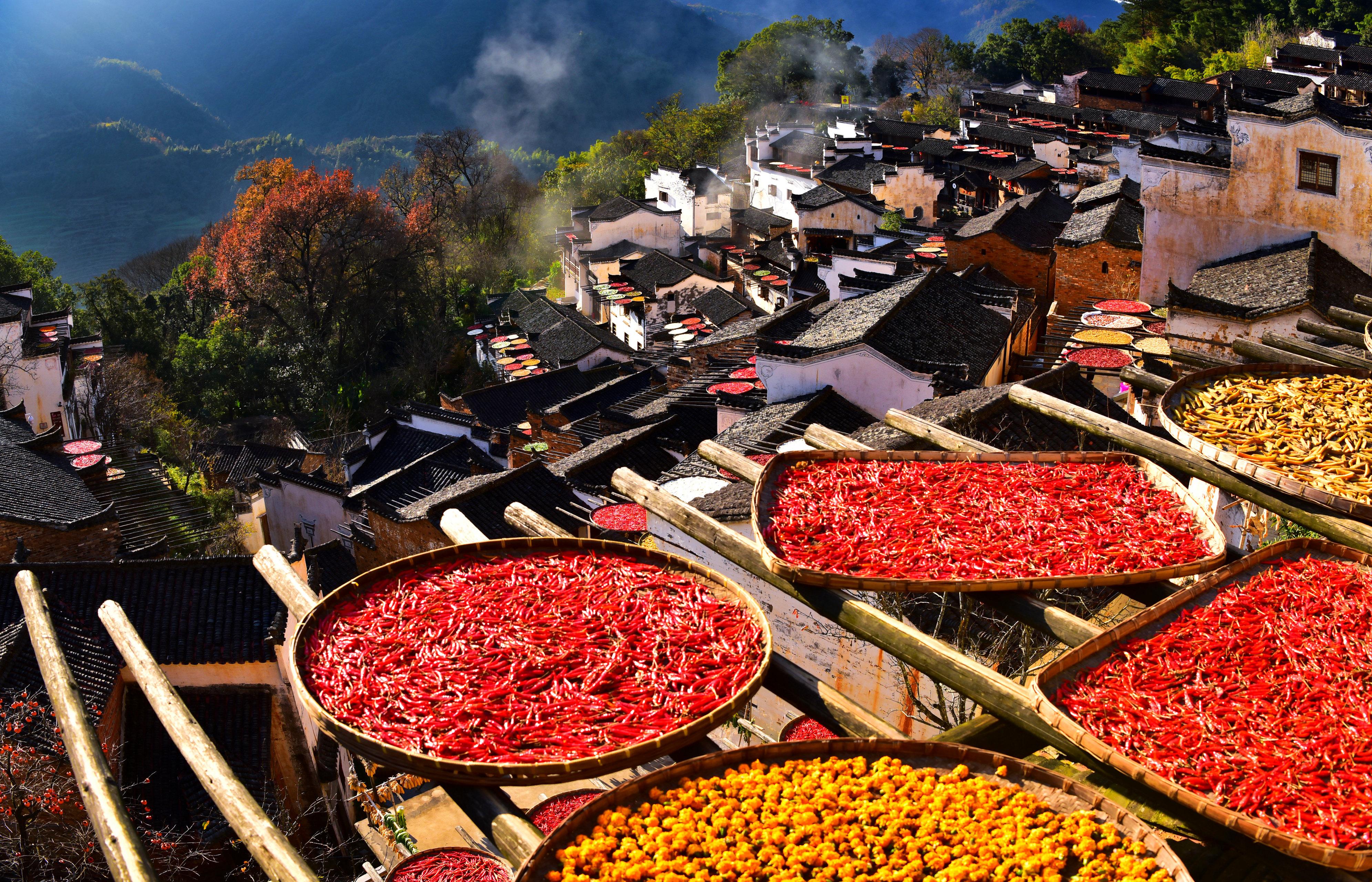
In a 500-year-old village, the autumn harvest features a special tradition. "Shaiqiu" is a rural tradition in Huangling Village, east China's Jiangxi Province where autumn crops are dried to be stored over the winter.
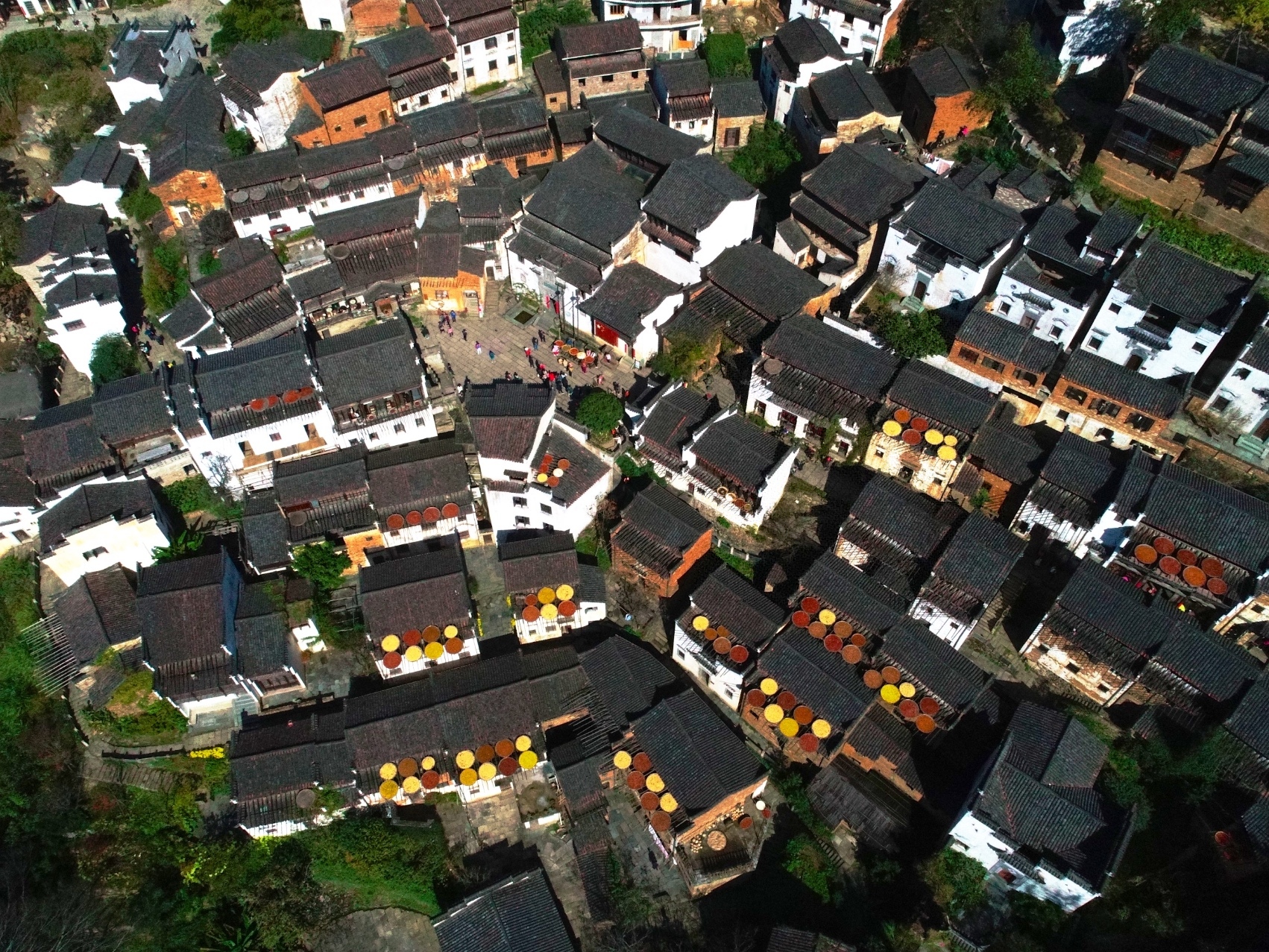
Villages decorated with various colors of crop patches bathing in the sun, gradually developed into a typical Chinese rural scenery during the autumn and attracted tens of thousands of visitors and photographers every year.
Much to do in "Liqiu"
Besides agricultural work, Chinese people also adjust their diet according to the transition of season.
After "Liqiu", it's popular to "get some autumn fat", which is called "Tie Qiu Biao" in Chinese.
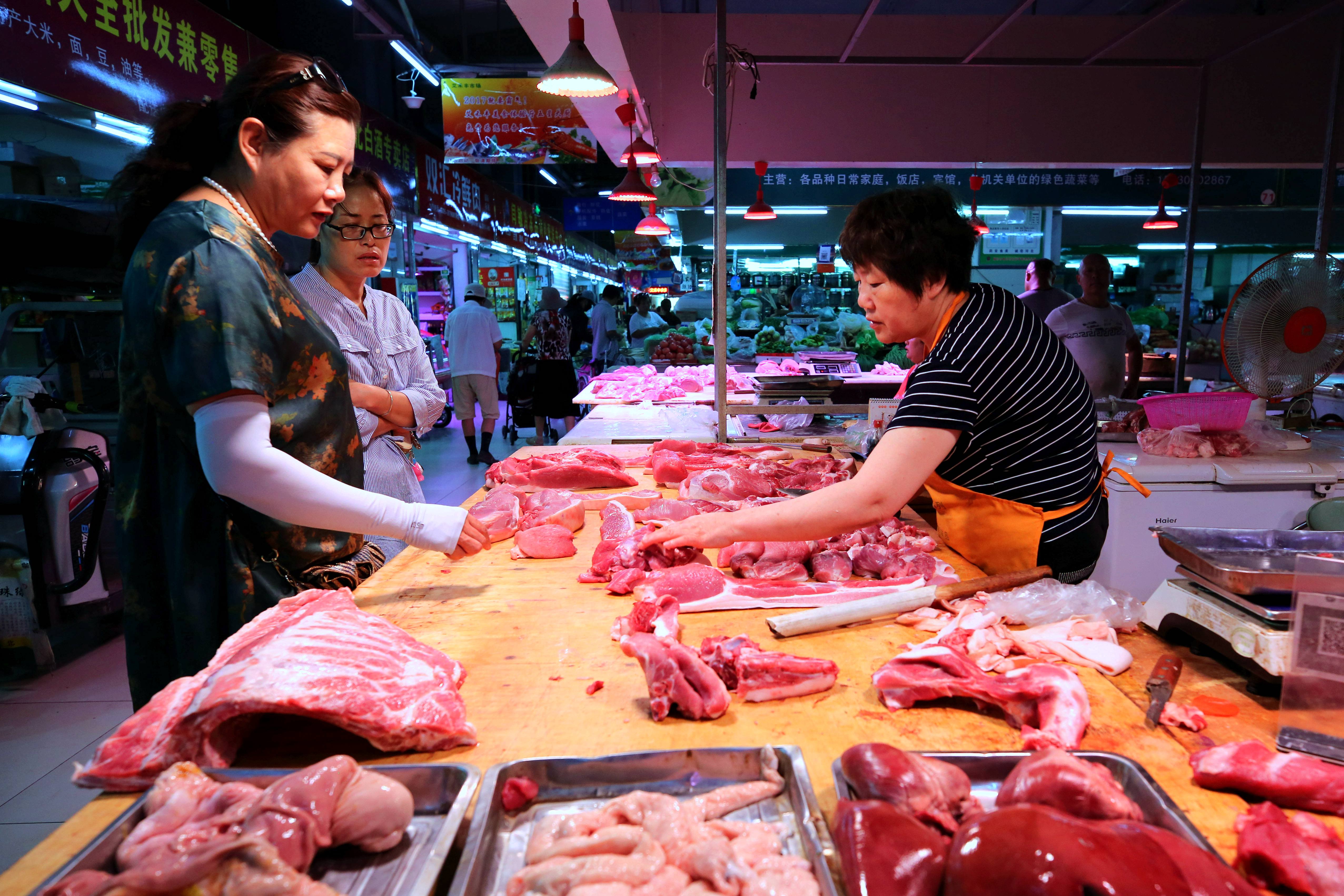
Since people have little appetite during the hot summer, cooling autumn becomes a season to take in nutrition for the coming winter by eating different kinds of delicious food, especially meat.
Nevertheless, meat is not the only choice in our traditional customs.
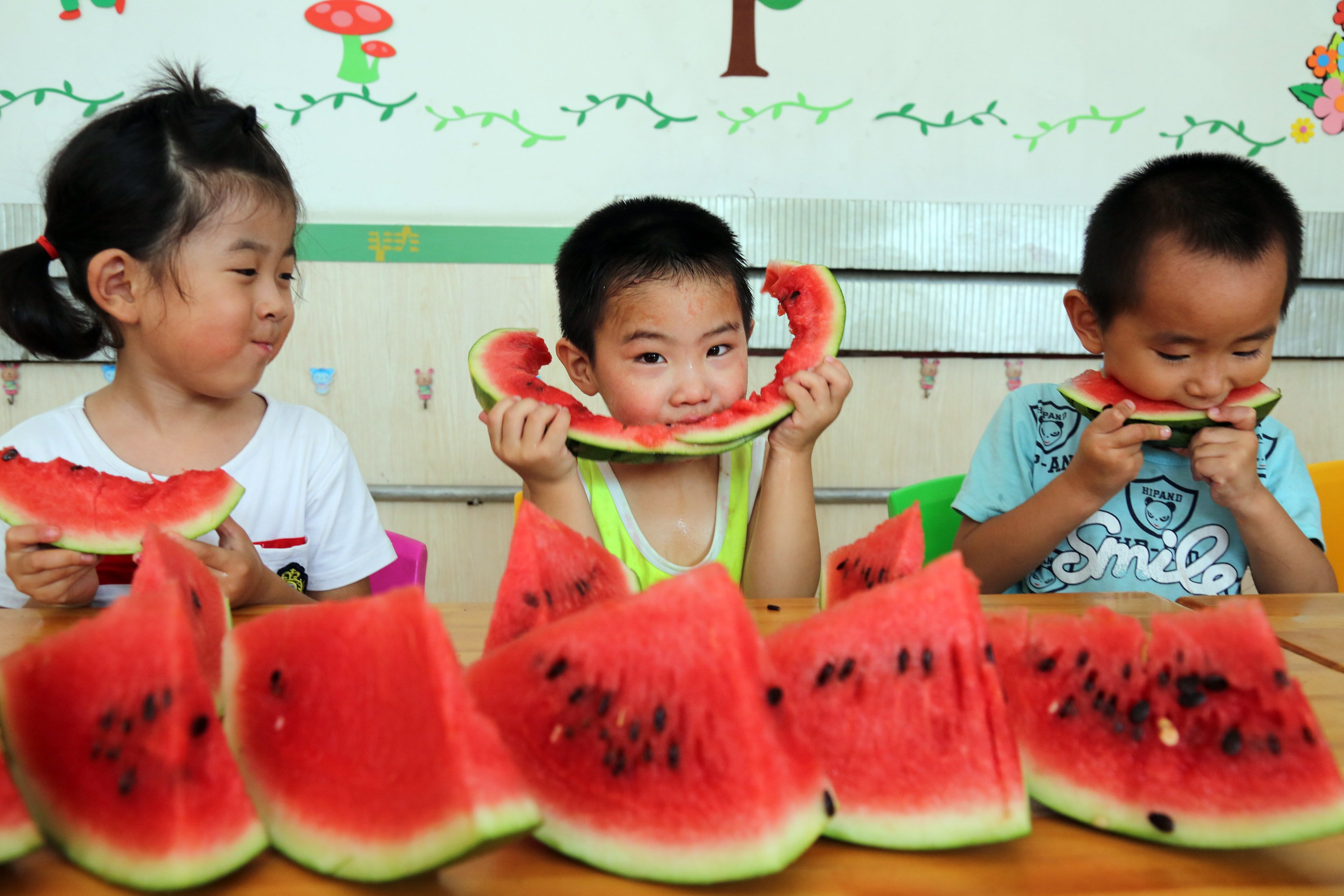
"Ken Qiu" or "Yao Qiu", meaning "biting into autumn", is also a part of the ancient food traditions on the beginning day of autumn. People usually eat watermelon and peaches, which was said to stave off bad health and prevent ailments related to the changing of seasons.
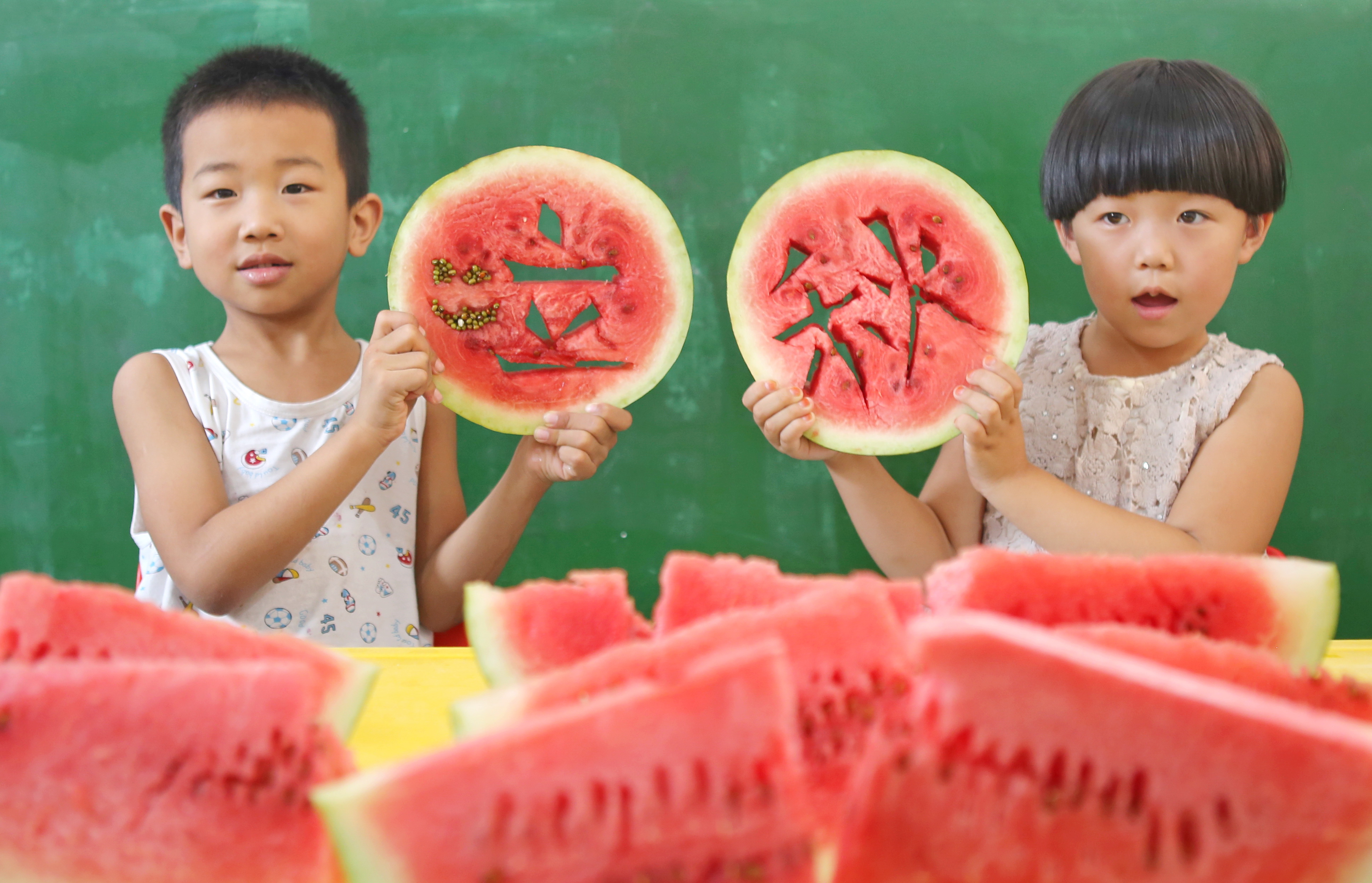
During the Beginning of Autumn, there come fog and dew, and descending temperature. One should pay attention to dressing strategies.
Early to bed and early to rise. Jogging, yoga, taichi are recommended sports in this season.
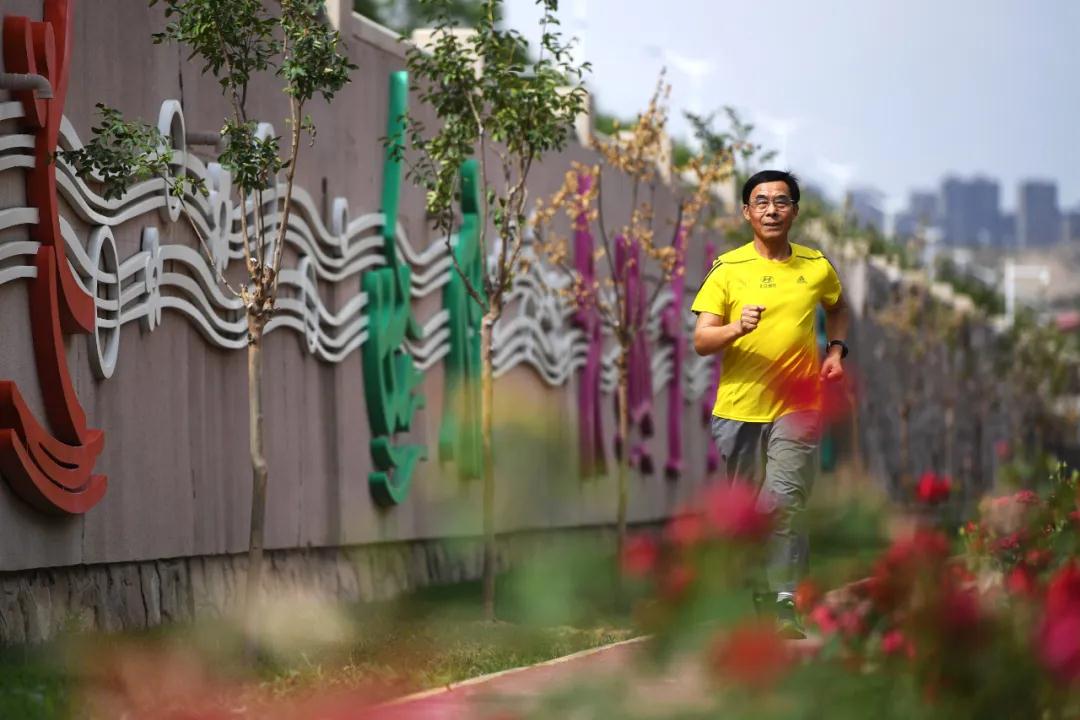
Seal up memories in summer
During the transition of seasons, descending temperature chips away at summer heat.
Yet for those working hard under the scorching sun, their figures will never fade away from our memories.

With autumn winds rising and leaves yellowing, the tranquil earth reveals its beauty in another color.
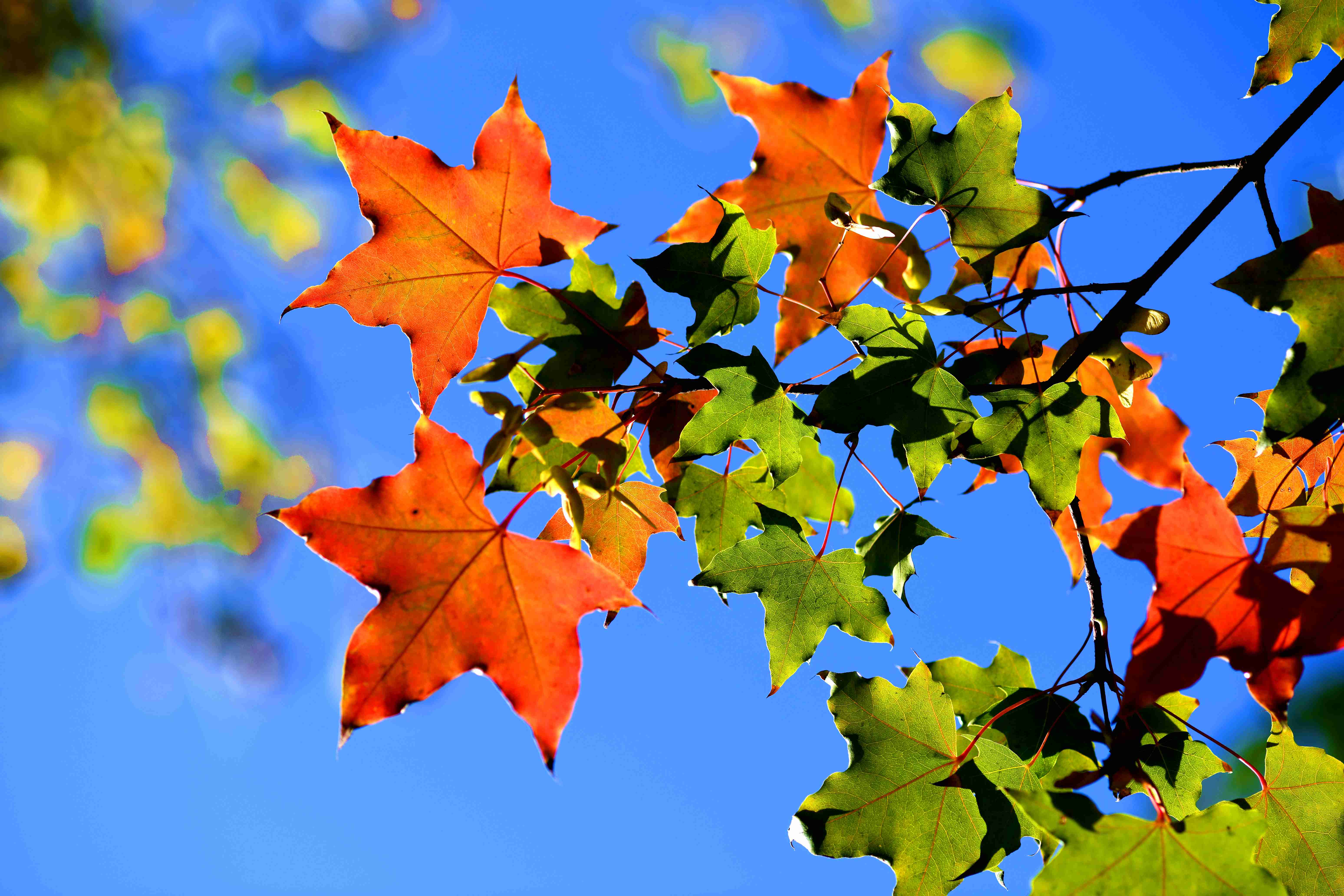
---------------------------------------
Producers: Ge Subiao, Yang Guoqiang
Supervisors: Yu Weiya, Liu Hongde
Reporters: Hang Zebo, Wang Jingyun, Li Yongxi, Lei Wenwen
Editors: Tao Yiping, Chen Zixia, Xu Xiangda, Wang Chao
Designer: Zhao Danyang
Interns: Zhang Qiudi, Chen Xiangmo, Zhang Mingming
 简体中文
简体中文

